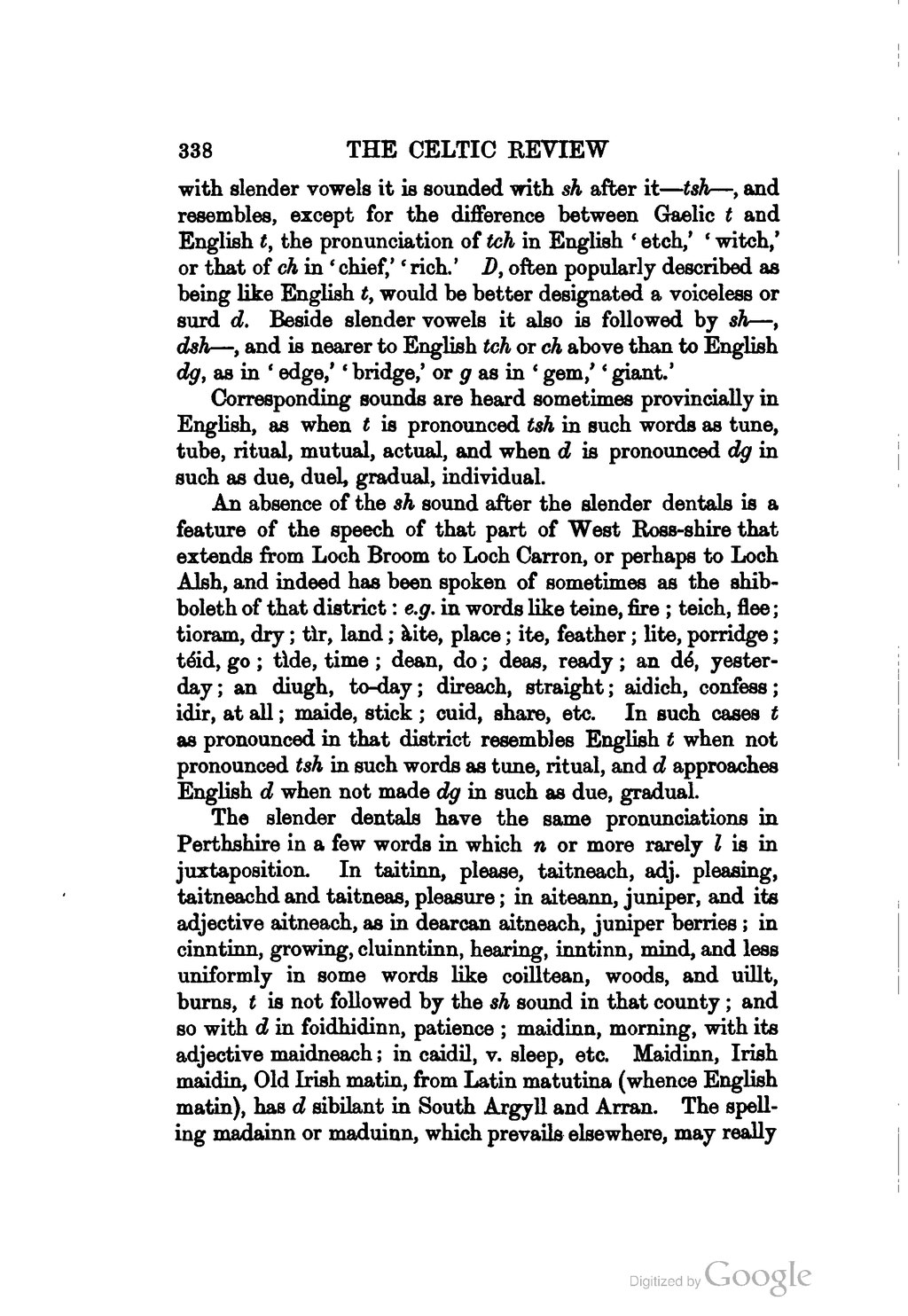with slender vowels it is sounded with sh after it—tsh—, and resembles, except for the difference between Gaelic t and English t, the pronunciation of tch in English ‘etch,' ‘witch,’ or that of ch in ‘chief,’ ‘rich.’ D, often popularly described as being like English t, would be better designated a voiceless or surd d. Beside slender vowels it also is followed by sh—, dsh—, and is nearer to English tch or ch above than to English dg, as in ‘edge,' ‘bridge,’ or g as in ‘gem,’ ‘ giant.’
Corresponding sounds are heard sometimes provincially in English, as when t is pronounced tsh in such words as tune, tube, ritual, mutual, actual, and when d is pronounced dg in such as due, duel, gradual, individual.
An absence of the sh sound after the slender dentals is a feature of the speech of that part of West Ross-shire that extends from Loch Broom to Loch Carron, or perhaps to Loch Alsh, and indeed has been spoken of sometimes as the shibboleth of that district: e.g. in words like teine, fire; teich, flee; tioram, dry; tìr, land; àite, place; ite, feather; lite, porridge; téid, go; tìde, time; dean, do; deas, ready; an dé, yesterday; an diugh, to-day; direach, straight; aidich, confess; idir, at all; maide, stick; cuid, share, etc. In such cases t as pronounced in that district resembles English t when not pronounced tsh in such words as tune, ritual, and d approaches English d when not made dg in such as due, gradual.
The slender dentals have the same pronunciations in Perthshire in a few words in which n or more rarely l is in juxtaposition. In taitinn, please, taitneach, adj. pleasing, taitneachd and taitneas, pleasure; in aiteann, juniper, and its adjective aitneach, as in dearcan aitneach, juniper berries; in cinntinn, growing, cluinntinn, hearing, inntinn, mind, and less uniformly in some words like coilltean, woods, and uillt, burns, t is not followed by the sh sound in that county; and so with d in foidhidinn, patience; maidinn, morning, with its adjective maidneach; in caidil, v. sleep, etc. Maidinn, Irish maidin, Old Irish matin, from Latin matutina (whence English matin), has d sibilant in South Argyll and Arran. The spelling maidainn or maduinn, which prevails elsewhere, may really
